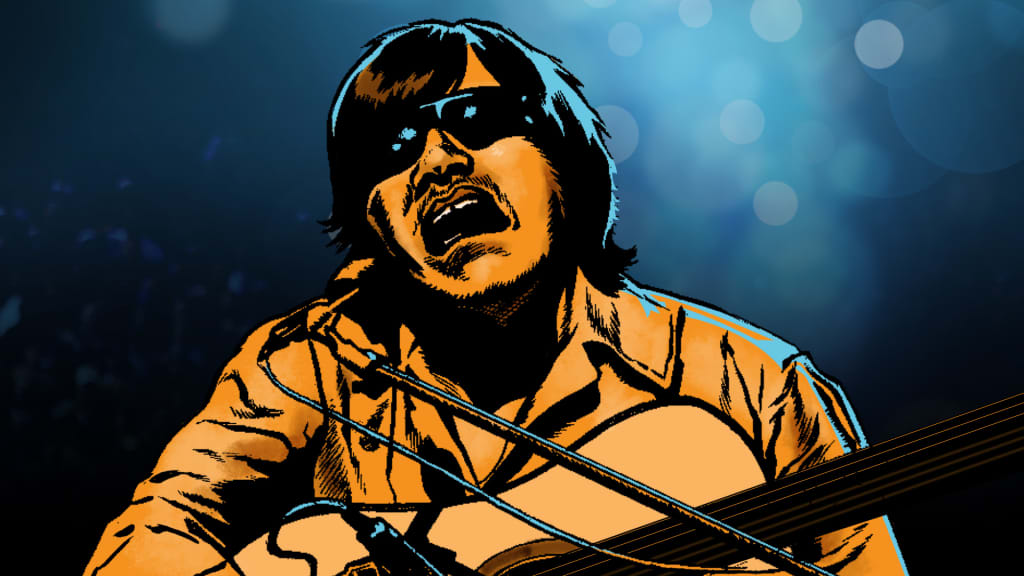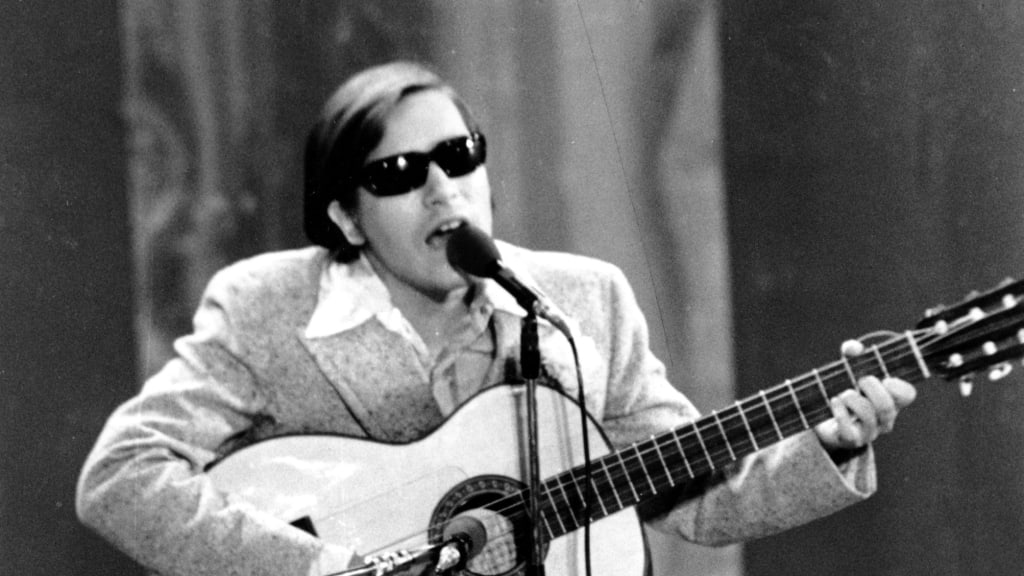The New York Times called it "controversial." Fans wrote it off as a "disgrace" and "unpatriotic," a "travesty that will never be permitted again." Cardinals pitcher Dick Hughes said, "thumbs all the way down."
The Tigers ended up winning Game 5 of the World Series on Oct. 7, 1968. Mickey Lolich, who had 17 victories that season, pitched a complete game. Mickey Stanley and Willie Horton both had big hits for Detroit and Horton threw out lightning-fast Cards outfielder Lou Brock on a close play at the plate.
But after the game -- a must-win game for the Tigers -- there wasn't much talk of baseball. The conversation mostly revolved around Jose Feliciano, the 23-year-old blind singer born in Puerto Rico who was asked to sing the national anthem by Tigers play-by-play man Ernie Harwell. Unlike others before him, Feliciano put his own twist on America's song -- submitting a different voice and style onto a public that wasn't quite ready for it.
Hearing it today, though, it probably rings as one of the most beautiful renditions ever performed.

And not everybody was outraged. Former Cardinals catcher Tim McCarver said, "Why not that way?" The Tigers' Bill Freehan said, "I know one thing. He made Marvin Gaye, who sang the anthem Sunday, sound like a square." (Of course, Marvin would out-do Feliciano and every national anthem singer in history years later.)
Feliciano was taken aback by the outcry. For those who called him unpatriotic, he believed it was actually quite the opposite. Here he is in an interview in 2018:
"When I did the anthem, I did it with the understanding in my heart and mind that I did it because I'm a patriot," Feliciano said. "I was trying to be a grateful patriot. I was expressing my feelings for America when I did the anthem my way instead of just singing it with an orchestra."

Although the performance affected Feliciano's radio play and record sales in the U.S. (he says touring around the world has garnered him much more success), RCA eventually released the single from Tiger Stadium and, perhaps because of curiosity or perhaps because most had accepted it for the spirited achievement that it was, it hit No. 50 on the Billboard charts. It was the first time the anthem had ever appeared there.
Feliciano's take on the song also paved the way for others like Gaye, Jimi Hendrix and Whitney Houston to try out more personalized versions.
The '68 rendition has played on loop at the National Baseball Hall of Fame, and Feliciano has since sung the "The Star-Spangled Banner" at multiple ballparks. He's also, quite ironically based on reactions in '68, performed it at naturalization ceremonies -- welcoming new immigrants onto American soil.
Harwell -- who nearly lost his job defending his friend's performance -- contracted cancer later in his life and one of his dying wishes was for Feliciano to come do the same performance before another Tigers game. In May 2010, six days after Harwell's death and 42 years after the World Series appearance, Feliciano grabbed his guitar and stool and did just that. The song was as beautiful as before, only this time, it was met with a standing ovation:
